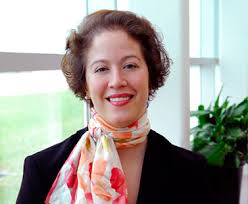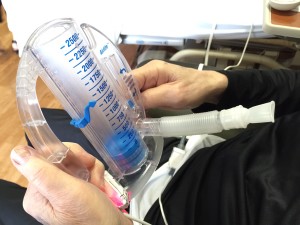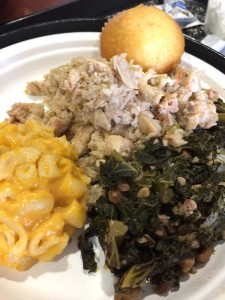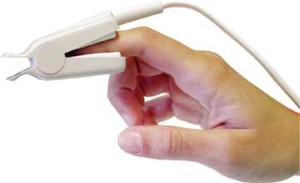by Jena | Mar 17, 2016 | Stem Cell Transplant |
Mom and Dad called me yesterday to notify me that Dad’s new admission date for his stem cell transplant is Thursday, March 24th, which is exactly one week from today.
During this week, our family will be traveling to various parts of the country. Daughter and Son’s school spring break starts tomorrow. Daughter is off to space camp tomorrow, and Son is off to Savannah on Saturday. After they return back to Tampa, the family is scheduled to fly out west to go skiing.
I am “battling” Mom and Dad about staying in Tampa to be with them. Of course, selfless Dad is doing his best to force me go skiing with the family. I know he feels terrible and full of guilt at the thought that I would be missing the opportunity to spend family time with Husband, Son and Daughter. Dad even took that authoritative “I’m your father” tone of voice with me yesterday. Mom and Dad were trying to convince me that the doctors and nurses would be doing all the work and that there would be nothing for me to do. I understand that I cannot take medical action, but I have learned how important it is to have 3 sets of ears versus two when meeting with the medical team. Mom and Dad countered with the promise to call me when the medical team visits Dad. I argued that Dad is the most important person in the family at this point in time, and he needs to come first.
We shall see. We will be out west before Dad goes into the hospital. I am contemplating returning home early. To add more guilt to the mix, Husband suggested that he, Son and Daughter fly home with me. And, Daughter said she only wants to ski with me. I know that is not really a true statement. Thus, if I don’t go, she doesn’t want to go. Then, we have Son who has been counting down the days to snowboarding since Christmas. Ugh. I am adamantly against the idea of anyone returning to Tampa with me or staying home with me.
The planner in me wants to make a plan. We have learned that Dad’s schedule seems to invariably shift. I have to get out of my comfort zone and take it day by day.
Now, I am hearing in my head the song, by the Clash, “Should I stay or should I go?”
https://youtube.com/watch?v=oGIFublvDes%3Frel%3D0
by Jena | Mar 14, 2016 | Brentuximab Vedotin, Infectious Disease, Stem Cell Transplant |
Monday, March 14th at 2:00 p.m., Dad had his follow-up appointment with Dr. Ayala at the main campus of the Moffitt Cancer Center. The appointment started with Denise, transplant nurse, reviewing Dad’s current medications. She also asked about Dad’s current symptoms. Denise noted that Dad’s last blood transfusion was two days ago on Saturday.
Dad immediately asked Denise if she had a new transplant admission date. She did not. Denise said that Dr. Ayala had not allowed her to schedule the donor until he saw Dad. Denise anticipated Dr. Ayala would now allow her set a new admission date with the donor based upon what she was seeing and hearing during the appointment. She sought to manage Mom and Dad’s expectations by saying that the admission date would likely be at least seven days out. Dad expressed disappointment with the week long wait. According to Denise, it is common courtesy to provide the donor time to make plans to accommodate the transplant date. Denise also shared that Dr. Ayala had reached out to Dr. Sokol, hematology oncology, asking if Dad needs another dose of Brentuximab Vedotin.
At 2:45 p.m., Dr. Ayala came in and asked how Dad was feeling. Dad’s biggest complaint was in regards to his feet and legs due to their over radiation. They burn, tingle and randomly go numb. Dr. Ayala inquired of his appetite and his fitness. Dad has been going to the fitness center, exercising in a mask and gloves, every few days. Dad spends 20 minutes on the bike and does some free weights. I imagine that Dad has no problem getting on a bike nor accessing the weights. Others, in the fitness center, probably scurry away thinking Dad has some highly infectious disease when they see him wearing his mask and gloves. A perk of being immunosuppressed.
Dr. Ayala conducted a physical examination of Dad. The egg, which now looks like a black mushroom, on Dad’s head is starting to reduce in size. Dad calls it a “head decoration.” Dr. Ayala said that Dad’s skin looked perfect. Dr. Ayala checked Dad’s lungs, legs and feet. At the end of the physical exam, Dr. Ayala asked jokingly, “What are we going to do with you?”
Dr. Ayala observed that Dad has gotten weaker. Dr. Ayala said that he doesn’t have a solid reason not to proceed with the stem cell transplant. He stated that without a transplant, Dad has no chance for survival. Dr. Ayala increased the risk of Dad dying from the transplant to 30-40%. Dr. Ayala predicted that it will be a bumpy road, and it may not work.
Dad wanted to know about the status of his disease. Dr. Ayala said that Dad still has CTCL. It is well under control, but no for a long time. It will come back and in full force. From a CTCL point of view, Dad looked “beautiful.” Disease control was excellent. His blood and skin had cleared.
Mom inquired about Dad’s weight loss. We reviewed the trends displayed in Dad’s weight graph on the exam room computer. Since January, Dad has lost 14 pounds. Dr. Ayala instructed Dad to continue going to the gym, walk, get stronger, be cautious about infections, eat, and fatten up.
Dr. Ayala recommended that Dad not do another round of Brentuximab Vedotin since they are targeting an admission date of a week or less.
 Denise will work with Mark, PA at Moffitt Cancer Center at International Plaza (MIP), to setup appointments for regular blood support and a daily line flush until
Denise will work with Mark, PA at Moffitt Cancer Center at International Plaza (MIP), to setup appointments for regular blood support and a daily line flush until
Dad’s new admission date for transplant.
Dr. Ayala and Denise will determine the proper Bactrim dosage (the script says one amount and the medicine bottle says another). Denise will notify Dad about the donor and the confirmed admission date. Denise will develop and send Mom a new, custom calendar containing Dad’s key activities during the transplant.
Hopefully, the fourth time is a charm!
by Jena | Mar 14, 2016 | Infectious Disease, Stem Cell Transplant |
Since Dad’s discharge as an inpatient in the Blood & Marrow Transplant (BMT) unit at the Moffitt Cancer Center on March 1st, Dad has been going daily to Moffitt to have his central line catheter flushed and to receive blood support. He has been given blood transfusions to elevate his hemoglobin (red blood cells), platelet transfusions, and neupogen shots to increase his white blood cell count. During this time, Dad was also taking Bactrim to treat his PJP and voriconazole to address potential fungal nodules in his lungs.
On Wednesday, March 9th, Dad had his follow-up CT scan at the Moffitt Cancer Center at International Plaza (MIP). Late that afternoon, Dad received a phone call from Dr. Ayala’s office stating that Dr. Ayala would not be able to see him as originally planned on Thursday, March 10th. Dr. Ayala had the flu. Dad’s appointment was then rescheduled for Monday, March 14th. Mom and Dad were highly disappointed. They had set their sights on Sunday, March 13th, as an inpatient admission to the BMT unit for Dad’s transplant….even though no one had given indication of a new admission date nor transplant date. Mom and Dad were extremely eager to get this transplant moving. Dad had experienced so many delays. The delays were weighing down his spirit. Mom was struggling with Dad being disheartened.
Early Thursday morning on March 10th, we went to Moffitt Cancer Center’s main campus to meet with Dr. Baluch, BMT infectious disease. We had actually never met Dr. Baluch when Dad was an inpatient earlier this month. Dr. Baluch had been out ill and then had gone on a ski vacation. We were eager to finally meet Dr. Baluch as her positive reputation had preceded her.
In the Blood & Marrow Transplant (BMT) clinic, we first met with Dr. Baluch’s nurse. She came in to review Dad’s information and medications. The nurse wanted to know about Dad’s respiratory symptoms. Dad said that he always has had a runny now (since he has been getting cancer treatments). Dad did not have a sore throat. The nurse inquired about any fevers, diarrhea, shortness of breath, etc. The nurse took a respiratory virus panel to check the status of Dad’s rhinovirus (aka the common cold).
Dad asked the nurse to assist him in getting in contact with Denise, transplant nurse, or her backup, Diane. Mom seemed to think that Denise was out of the office. Dad needed additional line flush and blood support appointments scheduled through Monday, March 14th, the day of Dad’s appointment with Dr. Ayala.

Dr. Aliyah Baluch
Dr. Baluch, BMT infectious disease, then came in to see Dad. She asked about any history of hemorrhoids, toe nail fungus, and mouth sores. She wanted to know Dad’s travel and career history along with his current living arrangements and hobbies. Dr. Baluch asked how Dad had been feeling the past few days.
We had a long discussion about his “vori” (voriconazole) medication. Dr. Baluch sought to understand when Dad first started taking vori and what dosage. Dr. Baluch confirmed that, from the BAL (bronchoalveolar lavage), two diagnoses were made, rhinovirus and PJP.
Dad successfully finished the two week therapy for PJP. The Bactrim dosage reduction is a precaution to keep Dad from being infected to a new exposure of PJP. Dr. Baluch also wanted to check his vori level via a blood test. It would take about three days to get the results. If needed, she would tweak his vori dosage. She had prescribed vori for Dad as an anti-fungal because he had lived in Ohio during his childhood through college. She indicated that Dad could have picked up something fungal in Ohio earlier during his childhood. The fungus stays with you for life.
Dr. Baluch reviewed the CT scan with us by comparing the prior one from late February to March 9th’s. She was impressed that Dad had cleared so well in only two weeks. It normally takes a minimum of three weeks.
She wanted to check Dad’s CD4 counts by running an immunodeficiency panel considering his numerous atypical infectious disease related infections. It will take one week to get the results back. One way to measure the strength of the immune system of a patient is to measure the T cell count (CD4). CD4 cells are types of white blood cells called T lymphocytes or T cells that fight infection and play an important role in immune system function. This will help her determine risk stratification prior to Dad’s stem cell transplant. Dr. Baluch said that she would be keeping this in her back pocket as a means to make smart decisions about managing Dad’s future risk of infection. Dad will see her when he is an inpatient for transplant.
Dr. Baluch cleared Dad for transplant! She noted that Dad is high risk due to the fact that he has had CMV (cytomegalovirus) and PJP.
Dr. Baluch is extremely engaging and highly impressive. She is Moffitt’s only stem cell transplant infectious disease doctor. She attended medical school, here in Tampa, at the University of South Florida (USF) and did her residency at USF and the Moffitt Cancer Center. Dr. Baluch then moved to the University of Alberta for her fellowship in transplant infectious disease. Subsequently, Moffitt created Dr. Baluch’s current position for her.
After spending time with her on Thursday, I am a firm believer in that every BMT unit must have an infectious disease doctor dedicated to transplant. I say this as no one dies from the actual stem cell transplant itself. Infection remains a major cause of mortality in stem cell transplant patients. Prevention of infection in these patients remains the optimal method of decreasing morbidity and mortality. Once infections occur within a transplant recipient, the mortality rate is high. Pathogens that are benign in an immunocompetent person can lead to significant mortality in transplant recipient patients, who are immunosuppressed.
Our discussion with Dr. Baluch flashed me back to college when I had planned to go to medical school. It reminded me of why I had wanted to be a doctor. I found medicine to be tremendously fascinating and the challenges of saving a life intensely thrilling and purposeful.
I shouldn’t have let my organic chemistry class and the future years of highly expensive medical schooling change my major to engineering.
by Jena | Mar 13, 2016 | Brentuximab Vedotin, Infectious Disease |
Picking up on Monday, February 29th
8:20 a.m. Mom and I arrived at Moffitt. Dad had trouble getting and staying asleep due to his feet bothering him from the radiation treatment in January. Hunter, Dad’s Sunday night nurse, had given Dad pain medication.
Dorothie, Dad’s day nurse, said that blood had been ordered since Dad’s hemoglobin level was 6.6. They were waiting on the blood to arrive. The search was taking longer due the presence of antibodies in his blood.

Dad’s incentive spirometer.
8:48 a.m.
Karla Adams, transplant physician assistant, and Eleni, transplant physician assistant student, came to see Dad. They inquired how Dad was feeling.
- No chest pain. Dad had experienced a some PACs (premature atrial contractions) yesterday.
- Dad had received oxygen during the evening. Eleni and Karla checked Dad’s breathing and heart rate.
- His temperature had been doing well, staying under 100.
- Dad’s sodium had been a little low. Karla told Dad to drink Gatorade and even soda. He should eat pretzels and chips.
- Bactrim suppresses his blood count. It is being given for Dad’s PJP.
Karla was moving his follow-up CT scan from the main campus to the Moffitt Cancer Center at International Plaza (MIP), which was scheduled for March 9th. Karla was going to ask Dr. Ayala whether or not Dad should get his next brentuximab vedotin treatment on March 7th. Karla thought it may not be a good idea to get brentuxmiab vedotin while having an infection. Dad’s appointment with Dr. Baluch, infectious disease, was scheduled for March 10th at 7:30 a.m.
12:48 p.m.
Dr. Walsh and another from pulmonary came to visit. They asked Dad how he had been eating and drinking. Had he been coughing? They checked his breathing. They said to continue the course of treatment for the PJP. They will be monitoring the cultures from the BAL (bronchoalveolar lavage) procedure every day to see if anything else grows.
1:30 p.m.
Dad received magnesium via IV.
2:48 p.m.
Kristen, transition nurse, came to visit. She confirmed tomorrow’s MIP appt at 7:30 a.m. for labs and neupogen. These appointments would reoccur until meeting with Dr. Baluch and Dr. Ayala on March 10th.

Dad’s inpatient meal.
Later in the afternoon, Dad experienced another fever (100.8) with chills. This resulted in his discharge being canceled. Dad would stay another night.
Another night, another Moffitt meal.
March 1st
In the morning, Dad was feeling well. His temperature experience yesterday prior to discharge was not sustained. Dad continued to receive blood support until his successful discharge in the afternoon.
by Jena | Feb 28, 2016 | Brentuximab Vedotin, Campath (alemtuzumab), Infectious Disease, Radiation Therapy, Stem Cell Transplant |
Friday evening, February 26
 Since Dad was admitted very early Thursday morning, Dad’s oxygen saturation has been continuously monitored with a pulse oximeter on his fingertip. On Friday evening, his saturation level dropped enough to warrant oxygen supplementation. Mom stayed overnight with Dad in his room.
Since Dad was admitted very early Thursday morning, Dad’s oxygen saturation has been continuously monitored with a pulse oximeter on his fingertip. On Friday evening, his saturation level dropped enough to warrant oxygen supplementation. Mom stayed overnight with Dad in his room.
Saturday, February 27
Dad’s temperature was up and down throughout the day. A couple of times Dad experienced a fever that included chills and uncontrollable shivering. He continued to be on oxygen. Dad didn’t have much of an appetite and wouldn’t eat the Moffitt food.
Dr. Ayala, transplant doctor, visited Dad. Mom put me on speakerphone so that I could participate. Dr. Ayala had conferred with Dr. Velez, infectious disease. Dr. Ayala restated what we had heard from Dr. Velez on Friday afternoon. Dr. Ayala wanted Dad to stay another night due to his fever and chills. I inquired about the donor. Dr. Ayala said that the donor was willing to wait for Dad. Hallelujah! Dad is extremely blessed to have such a donor.
I believe the doctors attribute Dad’s bone marrow aplasia from his Campath (alemtuzumab) treatments. Campath is a monoclonal antibody directed against CD52, an antigen (marker) found on both B and T lymphocytes. The drug is used most often to treat chronic lymphocytic leukemia and has been used in the treatment of advanced CTCL. Mom has always questioned if Dad received too many Campath treatments and wondered why Dad wasn’t more closely monitored for bone marrow aplasia.
Dr. Ayala said that Dad is in a difficult position. He has fungal pneumonia because he essentially has no immune system. The only way to get a new immune system is to have a stem cell transplant. Dad must get well in order to receive the stem cell transplant. Dr. Ayala spoke in a way that he was not confident that Dad would be able receive a stem cell transplant in the future.
 In the afternoon, Daughter and I went to visit Mom and Dad to bring some additional clean clothes for Mom and Dad since Dad was going to remain in the hospital. We also came bearing Chick-fil-A. Nuggets had to be more appealing than the flavorless Moffit food. Upon our arrival, Dad was extremely happy to see us and was slightly overcome with emotion. Perhaps it was the thrill of receiving Chick-fil-A! We could tell that he was quite uncomfortable and not his smiling, happy self. His eyes were dull and fatigued. He seemed physically agitated. Daughter and I were not expecting to see him this way. I sought out Dad’s nurse, Tammy, to give him something to take the edge off.
In the afternoon, Daughter and I went to visit Mom and Dad to bring some additional clean clothes for Mom and Dad since Dad was going to remain in the hospital. We also came bearing Chick-fil-A. Nuggets had to be more appealing than the flavorless Moffit food. Upon our arrival, Dad was extremely happy to see us and was slightly overcome with emotion. Perhaps it was the thrill of receiving Chick-fil-A! We could tell that he was quite uncomfortable and not his smiling, happy self. His eyes were dull and fatigued. He seemed physically agitated. Daughter and I were not expecting to see him this way. I sought out Dad’s nurse, Tammy, to give him something to take the edge off.
Since Dr. Ayala told Dad that he must get out of bed and walk, Mom now had a mission. Later in the evening, she had Dad up and moving around a bit. Dad ate dinner sitting in the chair.
Sunday, February 28
Dad was more lively today. Could it be the Chick-fil-A? He was sitting in the chair. Mom had plans for him to walk “laps” on the third floor of the Blood & Marrow Transplant (BMT) unit. At 12:37 p.m., Dr. Ayala and Karla, transplant physician assistant, came to visit Dad. Dr. Ayala listened to Dad’s lungs and checked his mouth and throat. Dr. Ayala found Dad’s throat to be clear and stated that it was much better. Dad hasn’t experienced any fever today. Dr. Ayala said that Dad looked better overall, especially as compared to yesterday. Dad is to remain at Moffitt tonight since Dr. Ayala wants to be cautious. Dad will be setup to be discharged earlier tomorrow. Dad will continue his antibiotics and anti-fungal medications.
Dr. Ayala did say that this fungal pneumonia was a major setback and that he cannot predict the future. He said that we will see if Dad is able to move forward with the stem cell transplant. Dr. Ayala sounded quite noncommittal. I don’t think Mom heard Dr. Ayala, yesterday, state the he was not confident about Dad’s ability to get a stem cell transplant in the future. Mom seemed surprised by Dr. Ayala’s statement today.
Mom inquired about the slow healing, necrotic egg on Dad’s head that now looks like a big, black mushroom. She wanted to know if it may contain fungus. Dr. Ayala said that it does not, because if it did, Dad would be experiencing pain and soreness at the site. Dr. Ayala doesn’t want to tamper with it as he believe it is healing. He said that the radiation therapy worked marvelously on Dad’s tumors including the egg. The plan is for Dad to see Dr. Baluch, infectious disease, and Dr. Ayala in a couple weeks in the BMT clinic. They will discuss another brentuximab vedotin treatment for Dad.
Before leaving the room, Dr. Ayala told Dad to go for a walk, and Karla said Dad would be receiving a platelet transfusion later today.
Page 4 of 10« First«...23456...10...»Last »

 Denise will work with Mark, PA at Moffitt Cancer Center at International Plaza (MIP), to setup appointments for regular blood support and a daily line flush until
Denise will work with Mark, PA at Moffitt Cancer Center at International Plaza (MIP), to setup appointments for regular blood support and a daily line flush until


 Since Dad was admitted very early Thursday morning, Dad’s oxygen saturation has been continuously monitored with a pulse oximeter on his fingertip. On Friday evening, his saturation level dropped enough to warrant oxygen supplementation. Mom stayed overnight with Dad in his room.
Since Dad was admitted very early Thursday morning, Dad’s oxygen saturation has been continuously monitored with a pulse oximeter on his fingertip. On Friday evening, his saturation level dropped enough to warrant oxygen supplementation. Mom stayed overnight with Dad in his room. In the afternoon, Daughter and I went to visit Mom and Dad to bring some additional clean clothes for Mom and Dad since Dad was going to remain in the hospital. We also came bearing
In the afternoon, Daughter and I went to visit Mom and Dad to bring some additional clean clothes for Mom and Dad since Dad was going to remain in the hospital. We also came bearing
Recent Comments